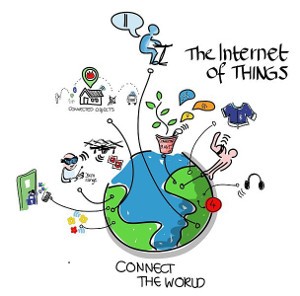OpenIoT is a generic middleware platform for Internet-of-Things applications, which allows you to link together Internet-connected devices and semantic Web services via a friendly user interface, working either in Cloud Computing environments or with a local server.
This platform is available as a Virtual Development Kit, providing a complete cloud solution for the Internet of Things which allows you to easily get up and running getting information from sensor clouds and connecting this information with Web services without worrying about exactly what different sensors are being used.
The OpenIoT middleware enables the easy scalability of sensor networks and the addition of new, cost-effective sensors in an intrinsically flexible framework, and aims to provide a complete middleware for Internet-of-Things applications, connected sensors and wireless sensor networks.
OpenIoT is building a novel platform for IoT applications, funded by the European Union, which includes powerful capabilities such as the ability to compose (dynamically and on-demand) non-trivial IoT services using a cloud-based and utility-based paradigm.
With an aim to facilitate open access to a wide range of technologies for Internet-connected sensors and other objects exposed as “services”, the creators claim that OpenIOT is the first open-source project to provide the means for setting up, managing and using a sensor cloud in this way.
With the ability to support large-scale deployments by co-scheduling access from thousands of simultaneous users to millions of sensors and actuators, OpenIoT will be well placed for all IoT-based solutions of all sizes, and it will have a small number of its own open (public data) sensing services for anyone to send queries to.
The OpenIoT project explores efficient ways to use and manage cloud environments for IoT entities and resources, such as sensors, actuators and smart devices, and the management of utility-based, pay-as-you-go business models for IoT networks and services.
The platform will provide instantiations of cloud-based and utility-based IoT sensor and data management services, using the OpenIoT adaptive middleware framework for deploying and providing IoT services in cloud environments to enable the concept of “sensors as a service” business models for commercial IoT applications.
OpenIoT supports flexible configuration and deployment of algorithms for collecting and filtering the large volumes of data that are collected by networks of Internet-connected objects, and processing and detecting those events that are determined to be particularly interesting and relevant to application or business outcomes.
As OpenIoT is a completely open-source project, and all its source code is available for download – developers and end-users can examine and openly use the OpenIoT platform. You can use the OpenIoT source code to create innovative services, to extend OpenIoT with new sensor wrappers, or to improve the OpenIoT platform itself.
Furthermore, OpenIoT also aims to provide the capacity for semantically annotating sensor data, according to the W3C Semantic Sensor Networks specification, streaming the data collected from various sensors to a cloud computing infrastructure, dynamically discovering and querying sensors and their data, composing and delivering IoT services that comprise data from multiple sensors and visualising IoT data using many different options such as maps and graphs.
An example application area where OpenIoT has been targeted is the improvement of efficiency in industrial operations such as manufacturing and agriculture. The OpenIoT platform can be used for intelligent sensing in manufacturing environments where it offers rapid integration of data from sensors and other devices in the manufacturing environment, dynamic and intelligent discovery of new sensors in factories, and analysis of data collected from the factory floor.
The OpenIoT platform enables the dynamic selection of sensors along with the nearly-real-time fusion of sensor data in order to deliver any manufacturing indicators that are required – not just sets of inflexible, pre-configured indicators. This can increase the agility of decision-making and of the manufacturing process.
One example of this is an agricultural application – where farmers and researchers can benefit from an instantaneous crop performance analysis platform that is powered by OpenIoT, using a wide range of distributed remote sensors gathering various types of data in order to build models that predict crop yields.

Every year Australian grain breeders plant up to a million small test plots of wheat and barley across the country to find the best high-yielding varieties. The Phenonet application developed by OpenIoT in partnership with the CSIRO is an interesting demonstration of the capability of the OpenIoT platform, using advanced sensor network technology to gather environmental data from crop trials at a much higher resolution than traditional methods and providing an OpenIoT-powered high-performance, real-time online data analysis platform that allows scientists and farmers to visualise, process and extract both real-time and long-term crop performance information.
The Phenonet project enables plant breeders and farmers to compare and evaluate the performance of different grain varieties using real-time measurements from a variety of remote sensors. By combining these measurements with each plant’s genetic profile, plant scientists can distinguish the effects of microclimate and genetics, thus improving the accuracy and speed of plant breeding which leads to better crop quality and increased agricultural yields.
This is only one of an almost infinite number of applications that can be harnessed with the OpenIoT platform. And no matter what your requirements are, from concept to final product – here at the LX Group we have the experience and expertise to solve your IoT power problems right through to a whole system to meet your needs.
Getting started is easy – join us for an obligation-free and confidential discussion about your ideas and how we can help bring them to life – click here to contact us, or telephone 1800 810 124.
LX is an award-winning electronics design company based in Sydney, Australia. LX services include full turnkey design, electronics, hardware, software and firmware design. LX specialises in embedded systems and wireless technologies design.
Published by LX Pty Ltd for itself and the LX Group of companies, including LX Design House, LX Solutions and LX Consulting, LX Innovations.
